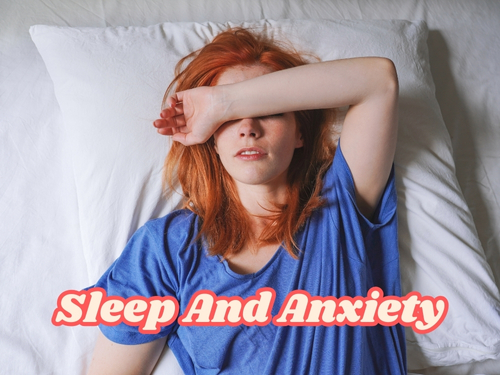Do Not Try Too Hard to Sleep
- Let sleep come to you when the timing is right.
- Keep a regular daily routine, with consistent times for eating, sleeping, and other activities.
- Learn relaxation techniques to help calm your mind.
- Avoid staying in bed awake for too long—if you’re still awake after 20 minutes, get up and sit in a quiet, dark room until you feel sleepy again.
- Sleeping tablets are not as helpful as you might think and may not provide a long-term solution.
Feeling Anxious About Sleep?
- Waking up at night is normal—some people remember it, while others don’t.
- Worrying about sleep can make it worse. Instead of thinking, “I won’t be able to function tomorrow unless I get back to sleep,” try reframing it to, “I’ve functioned on less sleep before, and I’ll be okay tomorrow.”
- Relaxation exercises before bed may help. If sleep anxiety continues, consult a doctor. A referral to a sleep specialist or psychologist may be beneficial.
I’ve Never Slept Well but Don’t Think I Have Anxiety
- Even if your life is relatively stress-free, an overactive mind can disrupt sleep.
- Some people struggle with sleep due to life stress, while others only worry about their sleep itself.
- Worrying about sleep can affect sleep quality.
- Maintaining fitness and a healthy diet can contribute to better sleep.
Caffeine and Alcohol: Do They Affect Sleep?
- Caffeine and alcohol should be consumed in moderation for better sleep.
- Avoid caffeine for at least 3 to 7 hours before bedtime, as it can make falling asleep harder.
- Alcohol may initially help you relax but can lead to disrupted sleep and nighttime awakenings.
- Too much caffeine can cause restlessness and interfere with sleep quality.
Should You Use Sleep or Anti-Anxiety Medication?
- Sleeping pills and anti-anxiety drugs do not always work and can become less effective over time.
- These medications can be habit-forming and may not address the root cause of sleep anxiety.
- The best way to reduce anxiety about sleep is to change how you think about it.
- Cognitive Behavioral Therapy (CBT) and Mindfulness techniques have been proven to improve sleep patterns.
- Ask your sleep specialist about CBT for better sleep management.
I Don’t Know Who to Talk to. What Should I Do?
- Talk to your GP—they can assess your situation and refer you to a sleep specialist if needed.
- Sleep psychologists are trained to help people sleep better by addressing mental and behavioral factors.
Final Thoughts
If anxiety is affecting your sleep, adopting better habits, relaxation techniques, and cognitive strategies can improve your rest. Seeking help from a medical professional or sleep specialist can also provide long-term solutions for persistent sleep issues.
About Us
At RSDC we have a particular interest in quick approach and triaging patients with suspected lung malignancy, management of pleural diseases, sleep disorders of obstructive sleep apnoea and other more complex sleep disorders, airways disease including asthma and COPD.
We use a comprehensive approach to interstitial lung disease in addition to occupational and environmental lung disease.

